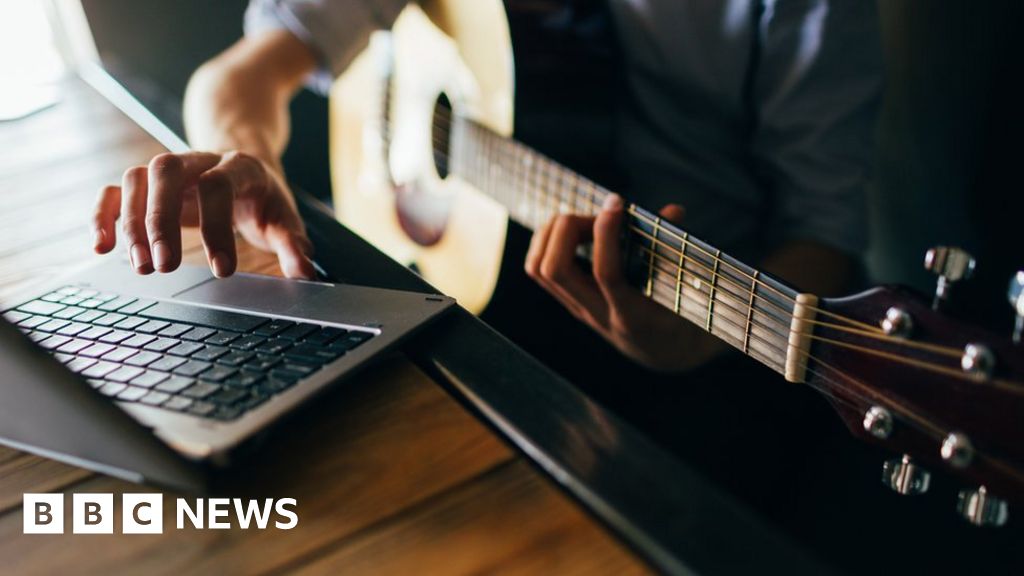Music Education 'risks Being Outdated By Technology'

 Image copyright
Getty Images
Image copyright
Getty Images
Music teaching could be left behind in an outdated acoustic age if it does not keep up with technology, an in-depth report says.
Too much music education does not reflect the reality of how young people engage with music, according to the inquiry from the Music Commission.
It says there is a risk this "disconnect" means current teaching methods may become outdated.
It argues technology could help stop music from disappearing from schools.
The commission, led by key figures in contemporary music and set up by the Arts Council England and the Associated Boards of the Royal Schools of Music, says technology is evolving at a rapid rate.
From apps that allow users to compose digital music on smart phones to 'teach yourself the guitar' YouTube videos, the opportunities technology offers for learning, making and engaging in music are significant.
Low-cost tech
The report says: "There is a danger that the "disconnect" between how young people use technology and music education may see current models of teaching rapidly becoming outdated.
"This is not about one replacing the other, but about bringing together the best in technology to work alongside and challenge acoustic music-making to create more relevant contemporary practice."
It adds: "The current generation of music learners can explore any era or kind of music at any time.
"Technology allows them to access and to merge 'musics' from any culture."
The report highlights how technology has enabled young people to improvise together, access virtual teachers and challenge each other in digital spaces.
It adds that new technologies increasingly provide accessible, low-cost means to make and share music, and that it should be a central plank of music education.
Music education 'thrown to the wolves'
Fears for music lessons in schools
It adds that the accessibility and immediacy of such technology means young people can have a more fluid approach, with the old barriers between different types of music being broke down.
Pressures
The report also says that the focus of music education should be ensuring every child is supported to take music further.
A report by the Musicians' Union last year suggested poorer children are being priced out of learning musical instruments.
Children in low income households were half as likely to take music lessons, it found.
Commission chairman, Sir Nicholas Kenyon, who is managing director of the Barbican, acknowledged there was a host of pressures on schools to meet academic targets.
He said: "People of all ages now learn and enjoy a hugely diverse range of music in many ways - at home, in classrooms, in communities and online.
"However, we're concerned that too much music education does not reflect the realities of how young people engage with music."
From Chip War To Cloud War: The Next Frontier In Global Tech Competition
The global chip war, characterized by intense competition among nations and corporations for supremacy in semiconductor ... Read more
The High Stakes Of Tech Regulation: Security Risks And Market Dynamics
The influence of tech giants in the global economy continues to grow, raising crucial questions about how to balance sec... Read more
The Tyranny Of Instagram Interiors: Why It's Time To Break Free From Algorithm-Driven Aesthetics
Instagram has become a dominant force in shaping interior design trends, offering a seemingly endless stream of inspirat... Read more
The Data Crunch In AI: Strategies For Sustainability
Exploring solutions to the imminent exhaustion of internet data for AI training.As the artificial intelligence (AI) indu... Read more
Google Abandons Four-Year Effort To Remove Cookies From Chrome Browser
After four years of dedicated effort, Google has decided to abandon its plan to remove third-party cookies from its Chro... Read more
LinkedIn Embraces AI And Gamification To Drive User Engagement And Revenue
In an effort to tackle slowing revenue growth and enhance user engagement, LinkedIn is turning to artificial intelligenc... Read more

